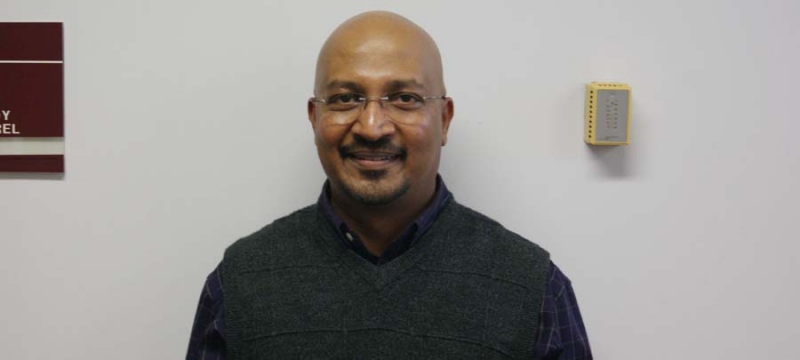
Archive
Dr. Murali Temburni Awarded $200,000 Research Grant
Monday, June 16, 2014
6/16/14
Dr. Murali Temburni, DSU assistant professor of biological sciences, was recently awarded a two-year, $200,000 Research Initiation Grant by the National Science Foundation HBCU-UP for his neuroscience research on understanding “The Role of Astrocytes in Neuronal Synchronous Activity in the Brain.”
Dr. Temburni – a molecular biologist who became a DSU faculty member in 2012 – is doing research in neuron communications, especially in the area of synchronous activity that is critical in brain development. Because abnormal synchronization can lead to epileptic seizures, Dr. Temburni’s research strives to gain a better understanding of the development of neuronal networks as well as to make progress in the development of therapies for epilepsy.
Toward those scientific objectives, Dr. Temburni has developed a research project that studies the synapse formation using the developing chicken brain as a model system.
According to Dr. Temburni, this project would not have been possible without input from his mentor, Dr. Melissa Harrington, the director of the Delaware Center for Neuroscience Research, a DSU neurophysiologist and collaborator, as well as Dr. Tomasz Smolinski, a computational neuroscientist, and support from Dr. Leonard Davis, chair of the DSU Department of Biological Sciences.
Dr. Temburni’s team of researchers includes Karla Sanchez, a graduate student, and undergraduate students Nkoli Agbazue, Jaskirandeep Kaur and Kasey Cosden, who are generating exciting data which confirms their initial suspicions – astrocytes are necessary for neurons to synchronize their activity. The team is currently working on unraveling the molecular pathways that are involved.
This NSF-funded project will also involve high school students from the Early College High School at DSU. Certain ECHS students interested in research will be selected to work in Dr. Temburni’s lab and will participate in the project along with peer undergraduate mentors.
According to Dr. Temburni, “catching them early” is the surest way of hooking students on scientific research – and this project will help achieve that goal, which is aligned with the goals of the ECHS.

